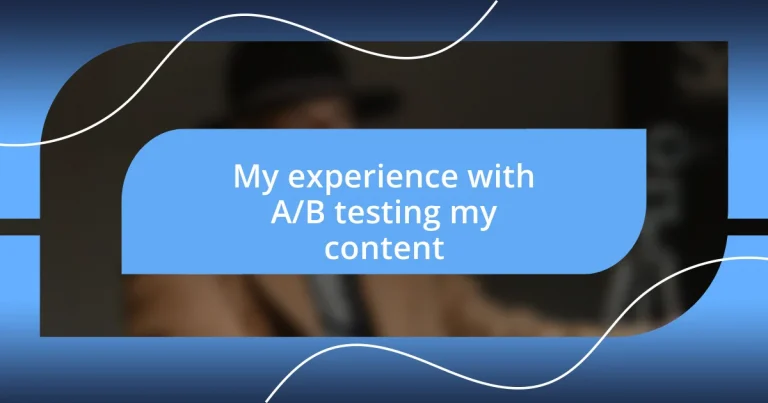Key takeaways:
- A/B testing helps compare two content versions to determine which performs better, enhancing decision-making.
- Small changes, like button color or subject lines, can significantly impact engagement metrics such as click-through rates and conversions.
- The process is data-driven, offering insights that challenge assumptions and guide content strategy based on audience preferences.

Understanding A/B testing basics
A/B testing, at its core, is about making informed decisions by comparing two versions of content to see which one performs better. I remember the first time I conducted an A/B test on my newsletter; I felt like a scientist in a lab, eager to uncover which subject line would grab my readers’ attention. It’s fascinating how small tweaks, like a different call-to-action button color, can lead to surprising shifts in engagement.
Have you ever hesitated between two images for your blog post? That’s where A/B testing comes in. By analyzing metrics from both options, like click-through rates and conversion, I’ve found the data not just enlightening but also empowering. It’s a bit like having a feedback loop that guides your content strategy.
One key aspect to grasp is that A/B testing isn’t about guesswork; it’s data-driven. When I first dived into testing my headlines, I realized that assumptions based on my preferences didn’t always align with what my audience responded to. Every test offers a chance to learn—and trust me, it’s rewarding to watch your content evolve based on real audience insights!














